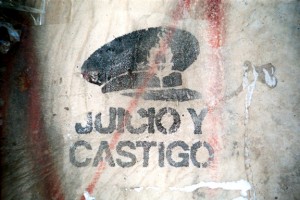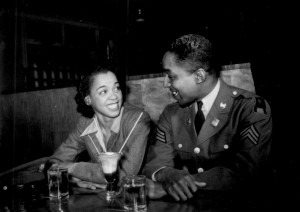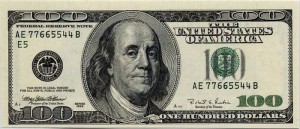
On Thursday, December 22, 2010 a man was sentenced to life in prison for his little part of a dirty little war. Former Argentine dictator Jorge Videla was officially convicted of the torture and murder of 31 prisoners in 1976. There were another two dozen people charged in connection with those same 31 deaths. Most of those charged also got life in prison. All of their victims had been Argentine prisoners who were pulled from their cells and “shot while trying to escape” as the military consolidated its power in the months after the coup earlier that year.
Getting to the point of a conviction for the 31 killed in 1976 has been a monumental journey for the people of Argentina. In reality, thousands more were taken from their homes, off the street, from their jobs, or from their schools never to be heard from again. Estimates vary between 10,000 and 30,000 people who were pulled from their lives and made to “disappear” between 1976 and 1983. The numbers cannot be proven one way or another because records were either not kept or have since been destroyed by those responsible. Whether 10,000 or 30,000; who were these people, what happened to them, and how could a population allow this to happen?
Before that question can be answered one must examine the context. Prior to the Dirty War, Argentina had a history of viewing the military as a more expedient method of solving problems than dealing with the messiness that comes with political solutions. From the end of World War II to the start of the Dirty War, civilian rule had been tenuous, and only existed in a fragile form form 1958 through 1966. The rest of the time military men in one form or other ruled Argentina. They each used violence against the Argentine people, but it was more or less isolated and always cloaked behind the cause of fighting subversives.
The events in Argentina must also be viewed in context of the political environment at the time. The United States, itself having been deeply involved in the war against communists in Viet Nam was once again meddling in affairs across Latin America, convinced communists would take over the region without a strong response. In neighboring Chile, Pinochet had risen to power in a coup with the assistance of the United States, and the military men in Argentina could clearly grasp the effectiveness of aligning with the support of the United States. The support from the United States varied from tacit approval of torture and murder, to outright financial and operational support. With this support behind them, the dictators in Argentina felt bold and empowered to act as they pleased to terrorize their citizens and consolidate their power.
In the early 1980’s the junta came under increasing scrutiny and pressure for the human rights abuses and the “disappeared” both from inside Argentina and from foreign countries. In a classic case of misdirection, the junta sought to deflect attention by a military action impacting their foreign affairs. The subject they picked was to reassert control over the Falkland Islands, which Argentina had claimed since 1820, but which England had been administering. Needless to say England was not happy about the affront on their sovereignty over the territory they considered their own.
The junta had thought that it could reclaim these islands relatively easily, that England wouldn’t mind their loss, and that the government would regain its popularity and control over its people. However, the government was wrong in its anticipations when 72 days after the invasion of the Islands, the British military won the war, having captured 9,800 Argentine POWs.
This ultimately led to the downfall of the junta. In 1982, suffering the public humiliation of the defeat in the Falklands and growing opposition at home, they retracted the restrictions on political opposition parties and restored basic civil liberties. The Dirty War ended when Raul Alfonsin’s civilian government took control of the country on December 10, 1983.
If you have read this far you are probably thinking, “Yeah that’s sad, so many people tortured and killed, but what does that have to do with me?” I would argue it has everything to do with you because we are seeing some of the same events unfolding today. Consider this:
- Our version of yesterday’s subversives are called terrorists today. Every taking of civilian liberties is done under the cloak of fighting terrorism. With every new government action to fight terror, government leaders and agency heads take more and more power from the hands of the people. The citizenry is increasingly willing to cede power in the name of the cause of fighting terrorism.
- Actions of the government are increasingly shrouded in secrecy in the name of effectiveness. It is the argument that, “…if we told everyone what we were doing, the terrorists would be able to use that information against us, and they would win.” As a result of this lack of transparency, the line between what is right and wrong is blurred. In the absence of hard rules, the boundaries are pushed further and further to the dark side.
- The government leaders are more frequently adopting an ends justifies the means position. Just as the Argentine leaders authorized those below them to kidnap and torture, so is the government of the United States. We may have yet to move to the point of firing off cattle prods on the vaginas of prisoners, or burning them with cigarettes, but we are not to far from holding their heads under water filled with feces and urine until they think they are drowning. Can you say water boarding?
It is time for us to wake up and stop this slide towards the dark side. This is a case where we must accept individual responsibility to hold our leaders accountable for upholding the law in a transparent and ethical way. If each of us waits for someone else, it will not happen. It is up to you to voice your concern and make the government leaders aware their actions will not be tolerated. If you don’t do it today, fast forward to five years from now and ask how you might resist in an environment where your actions might lead to you being “disappeared.” Whether today or tomorrow, the choice is yours.




